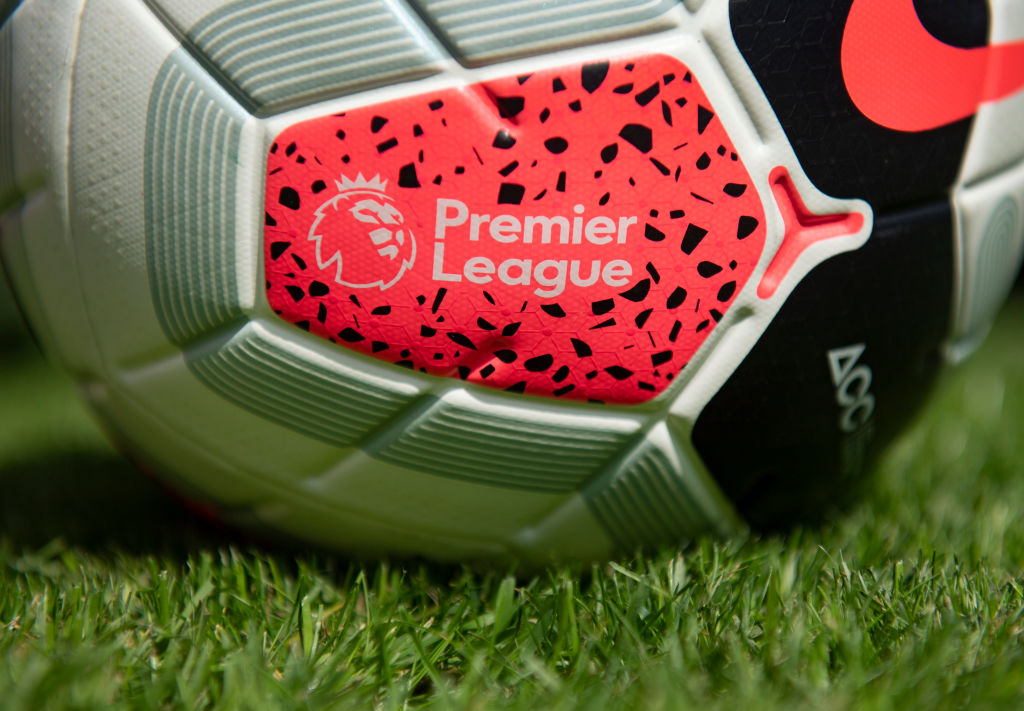Soccer
Premier League Returns to Action and Makes Powerful Statement Showing Support for Black Lives Matter

The Premier League returns to action for the first time in months since play was halted back in March due to the COVID-19 pandemic. Upon its return, the league will look very different with no fans in the stands and jerseys that will replace players’ names on the back with Black Lives Matter.
Premier League stopped play due to pandemic
RELATED: America Only Has 4 of the Most Profitable Sports Leagues in the World
The Premier League last saw action on March 13 before it halted play and shut down like the rest of the sports world in response to the spreading COVID-19 virus. While German’s Bundesliga and Spain’s La Liga have already returned to play, the Premier League delayed its return as officials debated two issues—relegation and safety protocols.
An alliance of six teams at the bottom of the league standings expressed concern that the competition’s integrity would be undermined if not completed in conditions similar to the portion of the season already played. The teams feared playing in empty stadiums would adversely affect the outcomes of the games, and in turn, the standings for the season. For clubs facing relegation, that translates into possibly losing tens of millions of dollars.
In addition to relegation-financial issues, some players had reservations regarding the health and safety protocols to be implemented, including Chelsea’s Willian.
“Honestly, from what I can see, a lot of players—the majority, I’d say— are uncomfortable with the idea of returning right now,” Willian told the Evening Standard in mid-May. “We’re really keen to return. We really miss playing and doing what we love. But it needs to be safe for us to do so. That’s how we’re looking at it. Our health has to come first.”
What changed so the Premier League could return?
RELATED: It Took 39 Deaths at Heysel Stadium for Europe to Crack Down on English Soccer Hooligans
In recent weeks, with the successful return of the Bundesliga in May and the completion of multiple rounds of action without incident, executives of England’s leading teams could see a path forward. The Premier League began developing protocols and plans for implementation.
Among the main items of focus was virus testing. The league recently conducted three rounds of tests on players and staff, which resulted in 12 positive tests out of 2,752 administered. The tests will continue to be conducted twice a week. Any individual who tests positive must self-isolate for seven days before being cleared to return.
The next step after a comprehensive testing program became operational was full-contact practice. Teams resumed regular practices in late May.
Premier League to honor healthcare workers and support Black Lives Matter
RELATED: Soccer Team Is Fined a Record Amount for Bringing Sex Dolls to a Game
Like the rest of the sports world that’s returned in recent weeks, there will be noticeable changes with the resumption of Premier League play. Among the most notable differences will be the empty stands. The sounds of enthusiastic crowds singing as one will be absent.
Before the start of action, there will also be a minute of silence remembering those who died from the coronavirus. In addition, the players will wear heart-shaped badges on their jerseys as a tribute to those front-line workers in the medical community and the UK’s National Health Service staff.
In addition to acknowledging the pandemic, league officials also recognized the growing worldwide movement supporting the black community in speaking out against racial injustice. In this week’s return to action, the player’s names on the back of the shirts will be replaced with “Black Lives Matter.” Premier League officials also said they will support any player who wishes to take a knee before kickoff.
While the Premier League might not be the first league to return to action, it is the first to offer a unified showing of solidarity with the black community. Like the Premier League learned from others leagues about returning to action, the rest of the sports world going forward should learn from the Premier League on how you can make a difference that goes far beyond the reaches of any sports stadium.











